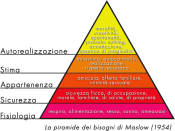IntroductionCompensation is an essential and universal component of the management process of every organization. Most organizations want to fulfill their mission, achieve their objectives and maximize return on their investment, particularly on their human capital. Doing so requires that their compensation philosophy, design, delivery and decisions be balanced, fair, focused, and understood by their employee and potential employee constituencies.
TextRole of Compensation and RewardsAn effective compensation system is about much more than base pay. It incorporates a wide range of elements, from the handling of raises and bonuses to providing benefits and offering non-monetary advantages such as learning opportunities and job security. In fact, focusing on a well-designed, comprehensive compensation package is often much more effective in improving business performance than simply increasing employees' base pay without regard for the broader picture.
Compensation takes the forms of wages and benefits. The pay structure consists of:â¢Wages which are a monetary payment for services performed on an hourly basis for specified quality of labor (blue-collar worker) either an employee or employer (working for someone else).
Wage rate is usually the main monetary concern discussed between the worker and the potential employer when negotiating employment or an employment contract.
â¢Salary is often interchanged with the word wage, but salary is usually governed by an employment contract for a fixed period of time such as a week, month, or per year that requires the employee to possess special training or abilities associated to that particular job position (usually referred to as a white-collar worker).
â¢Employee Benefits are offered from many companies to attract, retrain, improve morale and promote employee productivity. Benefits are usually offered in addition to general wages in a wide variety from company to company in the form of, but are not limited to, paid holidays, vacations, health insurance, dental plans, sick...


